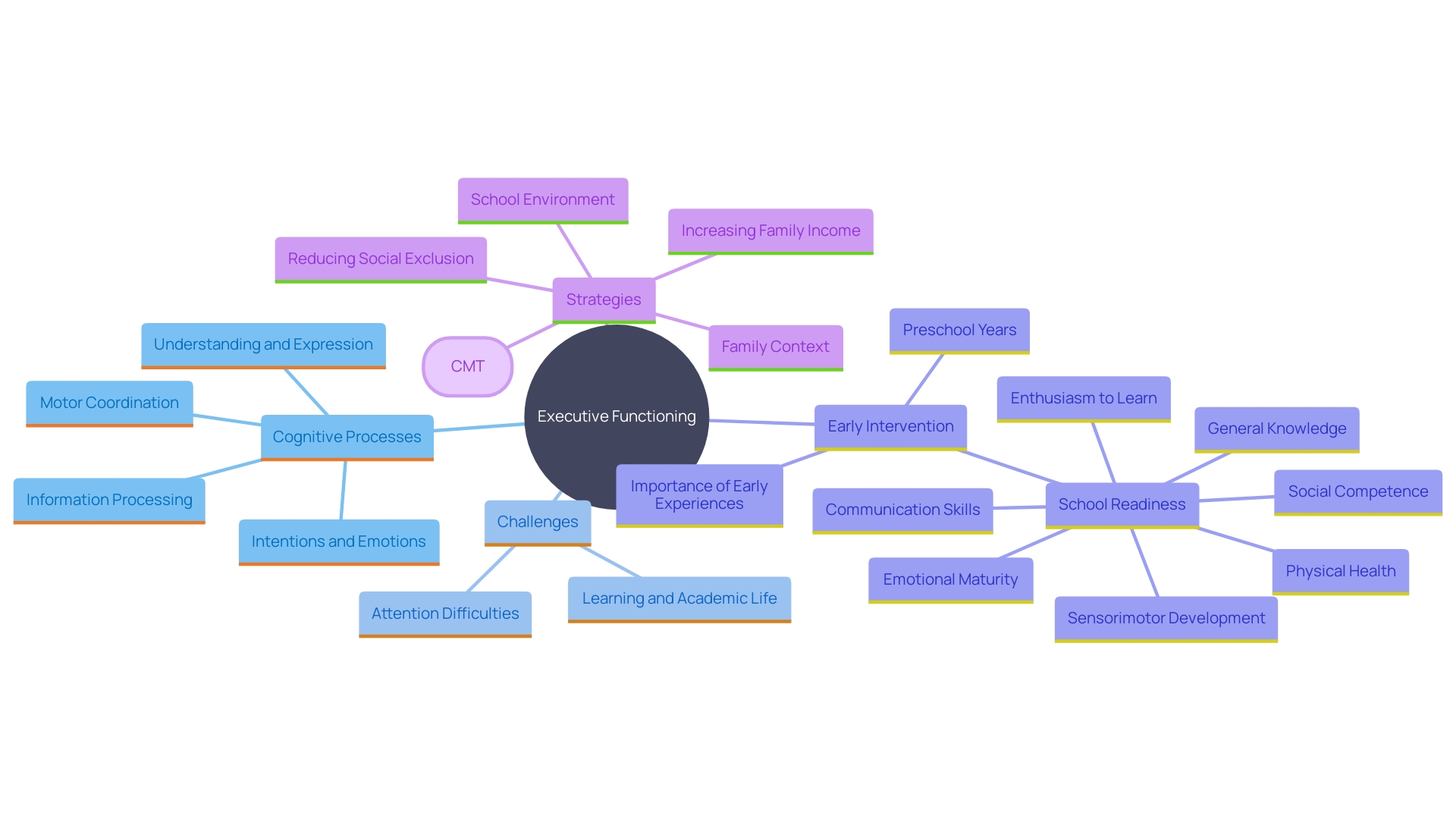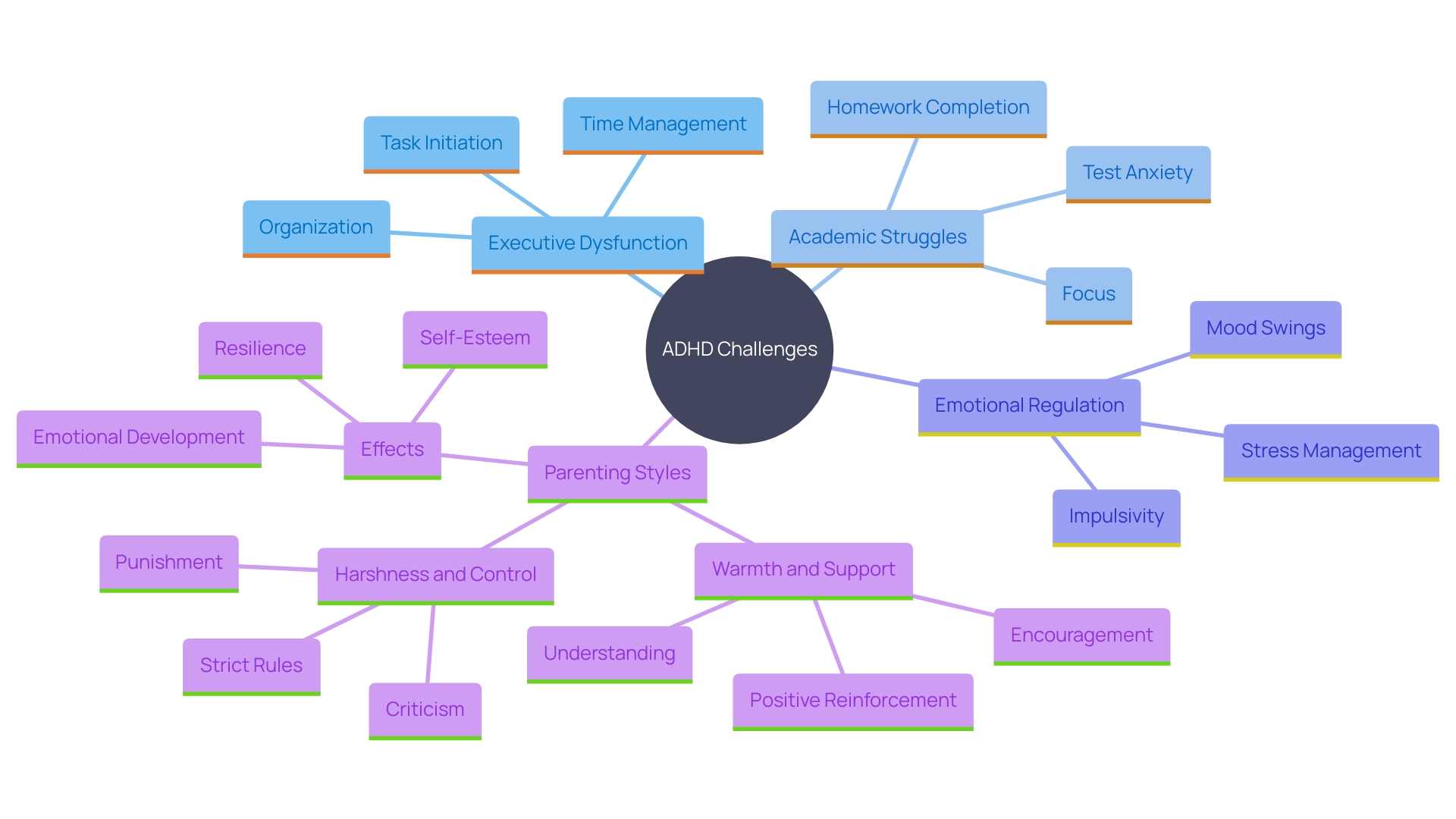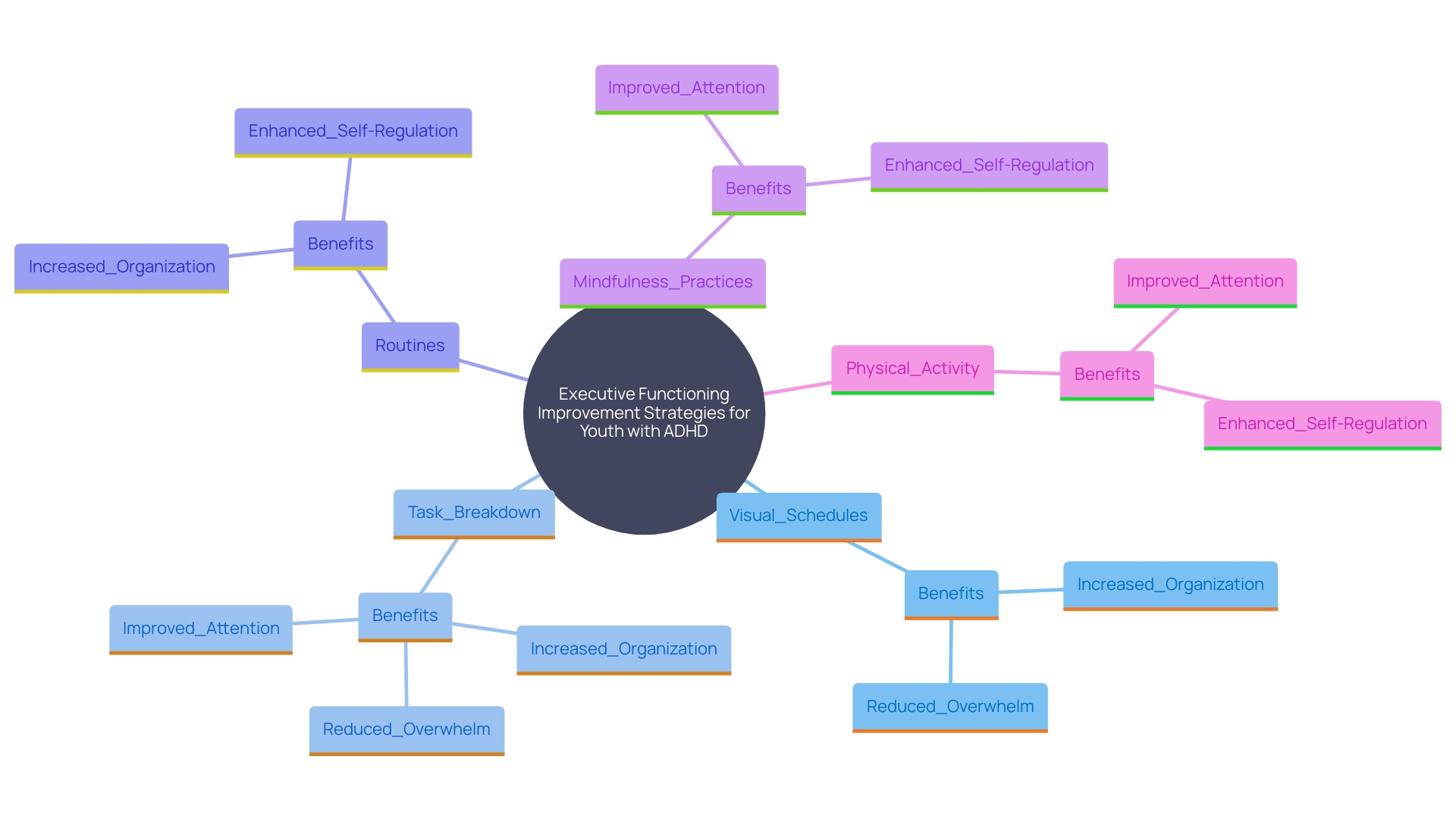Introduction
Understanding executive functioning is essential for recognizing the challenges faced by children with ADHD. Executive functioning encompasses a range of cognitive processes vital for regulating behavior, maintaining focus, and managing emotions. These skills are crucial for tasks such as planning, organization, and decision-making, yet children with ADHD often experience significant deficits in these areas.
This can lead to substantial challenges in both academic and social settings.
Research emphasizes the importance of addressing these deficits early, as structured learning environments typically highlight these issues. Comprehensive clinical assessments are crucial for accurate diagnosis and support, as they go beyond tools like the QbTest. Ensuring fair and equitable support for children with ADHD means recognizing their unique needs and providing the necessary resources to help them thrive.
This support not only enhances their academic performance but also promotes their overall mental health and well-being.
Interventions such as compassionate mind training (CMT) have shown promise in mitigating anxiety and depression, which are common in children with ADHD. Such interventions can improve the classroom environment and foster prosocial behaviors, supporting children in developing the executive functioning skills they need for success in various aspects of life.
Understanding Executive Functioning
'Executive abilities encompass a variety of cognitive processes integral to regulating behavior, maintaining focus, and managing emotions.'. These skills are foundational for tasks such as planning, organization, and decision-making. Nevertheless, young individuals with attention difficulties frequently encounter considerable shortcomings in executive functioning, which can lead to major obstacles in both educational and social environments.
Research highlights the importance of addressing these deficits early on, as delays in formal schooling and exposure to structured learning environments often bring these issues to light. According to a study by the University of Southampton and partners, a comprehensive clinical assessment is crucial for accurate diagnosis and assistance, as tools like the QbTest alone are insufficient.
Dr. David (Dan) R. Offord stressed the significance of just assistance, stating, “I do not mind if my offspring are in a race as long as the competition is fair.” For youngsters with attention difficulties, ensuring a fair competition involves acknowledging their distinct requirements and offering the essential resources to help them succeed. This approach not only aids their academic performance but also supports their overall mental health and well-being.
In light of these challenges, interventions like compassionate mind training (CMT) have shown promise. Research by the University of Derby suggests that CMT can positively impact anxiety and depression among school pupils, improving the classroom environment and fostering prosocial behaviors. Such interventions could be essential in assisting young individuals with attention difficulties, helping them cultivate the executive functioning abilities they require for achievement in different areas of life.

Challenges of Executive Dysfunction in ADHD
Children with attention deficit hyperactivity disorder often encounter a spectrum of challenges due to executive dysfunction, such as difficulties with time management, maintaining focus, and emotional regulation. These hurdles can manifest in academic struggles, strained relationships with peers and family, and increased anxiety. This intricate neurodevelopmental condition is marked by impulsiveness, overactivity, and lack of focus, impacting every individual in a unique way. For instance, numerous young individuals with attention disorders display hyperactivity and impulsivity, which can cause them to be perpetually in motion and regularly change activities. Understanding these unique challenges is crucial for parents and educators to create supportive environments that foster success. Studies highlight that parenting practices marked by warmth and support are associated with healthier emotional development in young people, fostering resilience against academic, social, and psychological challenges. Conversely, harsh and controlling parenting has been associated with higher levels of anxiety and externalizing symptoms. Consequently, establishing supportive and compassionate settings is crucial for assisting youngsters with attention difficulties to flourish.

Strategies for Enhancing Executive Functioning
Implementing targeted strategies can significantly enhance executive functioning skills in youth with ADHD. Techniques such as using visual schedules, breaking tasks into manageable steps, and incorporating regular routines can help young individuals stay organized and focused. Visual schedules offer a clear framework, enabling young ones to see their day and lessen uncertainty. Breaking tasks into manageable steps prevents them from feeling overwhelmed and helps them tackle one step at a time. Consistent routines establish a reliable atmosphere, which is essential for individuals with ADHD to foster a sense of stability and continuity.
Additionally, integrating mindfulness practices and physical activity can improve attention and self-regulation. Mindfulness techniques, such as deep breathing exercises and meditation, assist young individuals in becoming more aware of their thoughts and feelings, enabling them to manage their reactions better. Physical activity, on the other hand, has been shown to boost brain function, enhance mood, and increase focus. Activities like yoga, team sports, or even a simple walk can be incredibly beneficial.
'The significance of such strategies is highlighted by specialists like Dr. David (Dan) R. Offord, who stressed the necessity for an equitable competition for all young individuals, including those with disabilities.'. Making certain that young ones with attention difficulties possess the resources and assistance they require is vital for their psychological well-being and general growth. Involving young people in significant tasks at school, home, and during free time can lessen ongoing stress and promote their healthy growth. By recognizing and addressing their unique needs, we can assist young individuals with attention challenges to flourish in their daily lives and achieve their full potential.

Professional Support and Therapy Options
Engaging with professionals who specialize in ADHD can provide invaluable support for families. Therapy choices such as cognitive-behavioral therapy (CBT) and parent training programs equip parents with techniques to manage their offspring's behavior and improve executive functioning skills. For instance, Blackbird Health integrates cutting-edge technology and personalized care plans to deliver superior mental health outcomes. Additionally, collaborating with teachers and school counselors is crucial, as it ensures that students receive the necessary academic accommodations to thrive. With innovative solutions and dedicated professionals, families can better navigate the complexities of ADHD and support their children's development.
Conclusion
Recognizing the multifaceted nature of executive functioning is vital for understanding the challenges faced by children with ADHD. These cognitive processes are essential for regulating behavior, maintaining focus, and managing emotions. When deficits arise, they can significantly impact a child's academic performance and social interactions.
Early intervention and comprehensive assessments are crucial for identifying these challenges and ensuring that children receive the tailored support they need to thrive.
The hurdles posed by executive dysfunction can create a ripple effect, influencing academic success and emotional well-being. Nurturing environments, characterized by warmth and understanding, are essential for fostering resilience in children with ADHD. Strategies such as visual schedules, task breakdowns, and mindfulness practices can enhance executive functioning skills, providing children with the tools they need to navigate daily challenges effectively.
Professional support, including therapy options and collaboration with educators, plays a critical role in this journey. Engaging with specialists ensures that families receive the guidance necessary to manage ADHD effectively. By leveraging innovative strategies and fostering supportive environments, parents and advocates can empower children with ADHD to reach their full potential, promoting their overall mental health and well-being.




